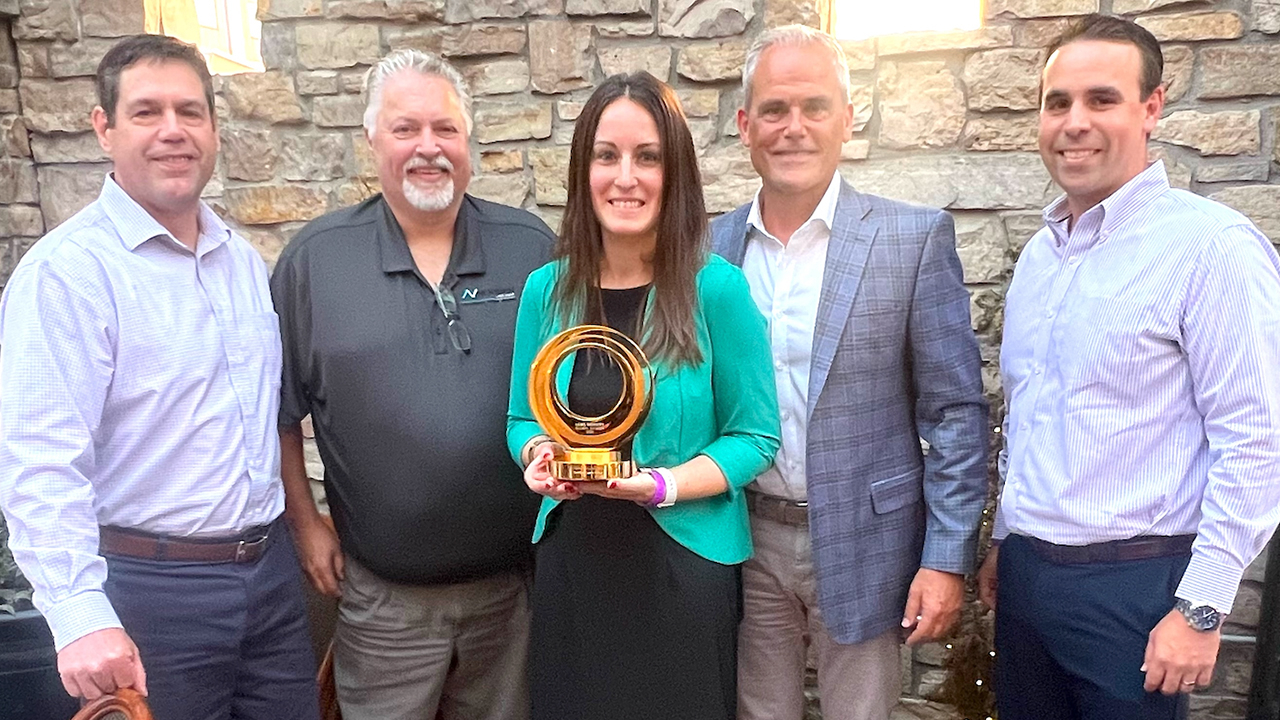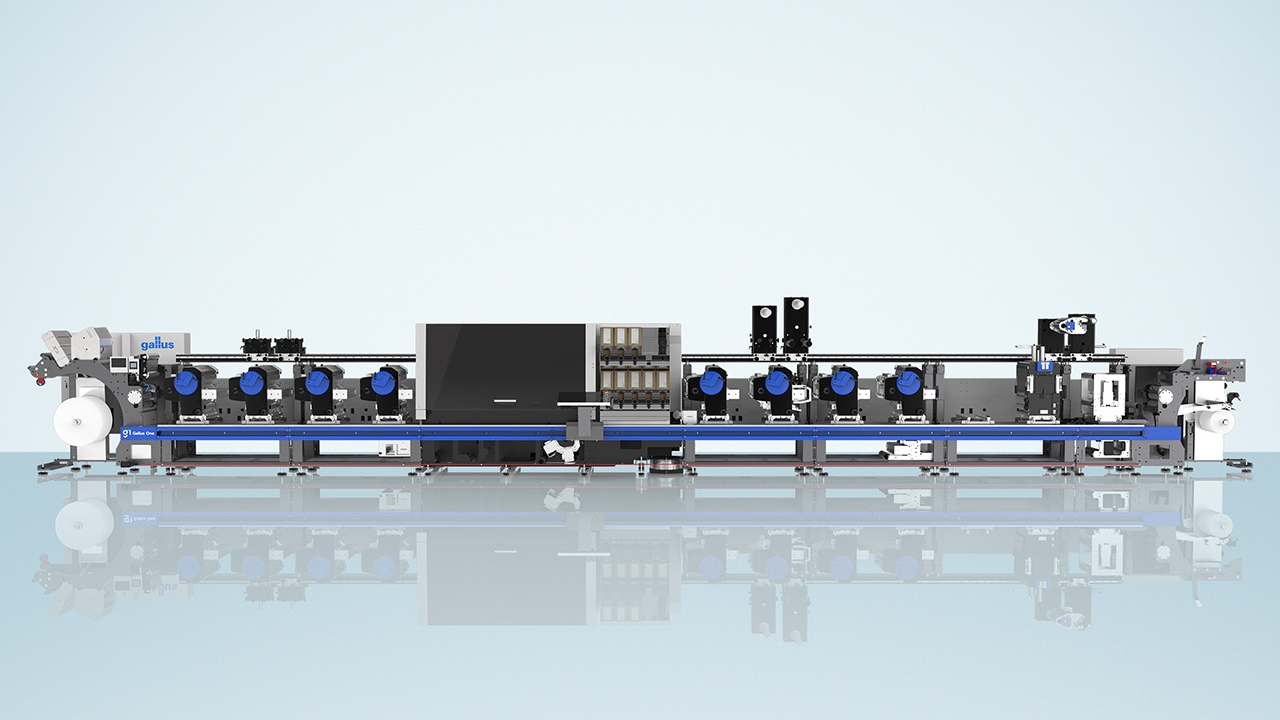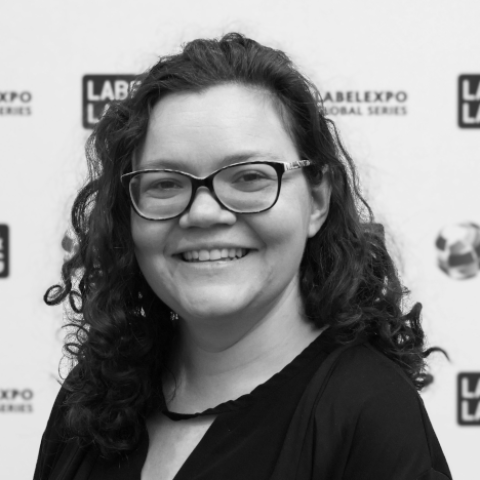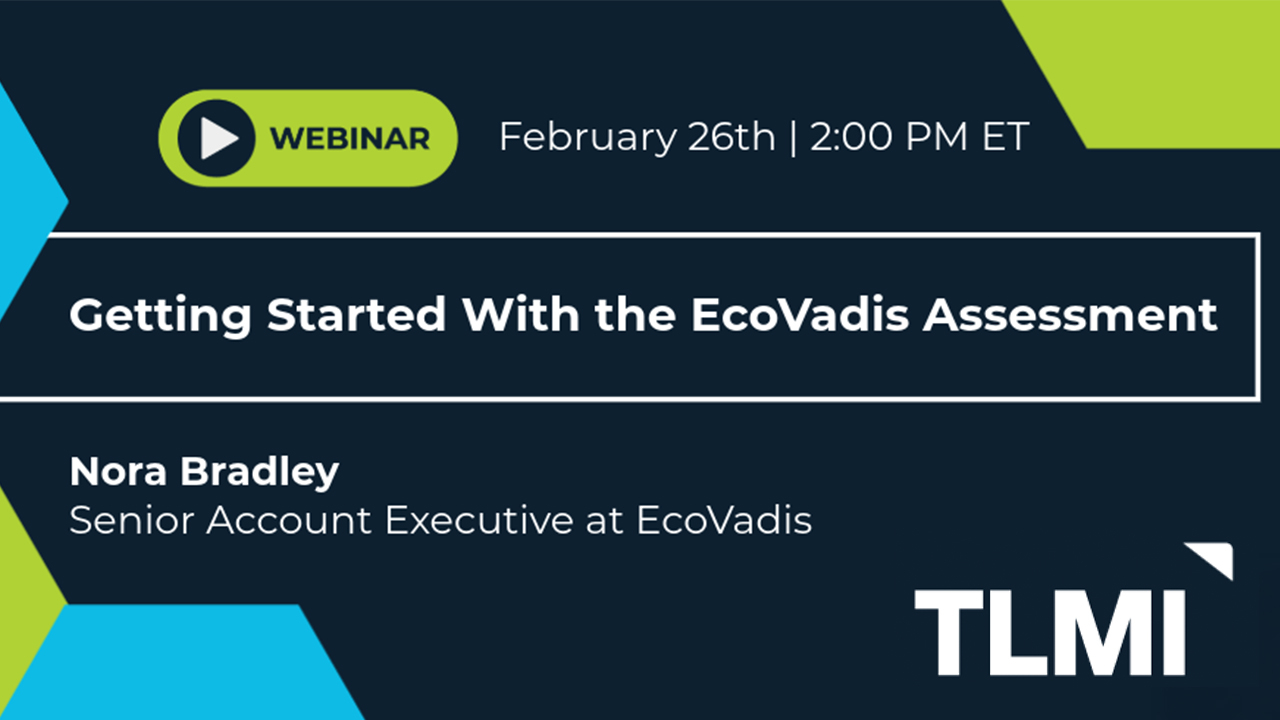NextGen evolves with new leaders and technology
The employee-owned company has gone through several significant changes since its merger.

L-R: Paul Roux, chief technical officer; Nick Noyes, chief operating officer; Jessica McCarthy, chief HR officer; Tom Sargent, corporate adviser; and Dan Rosenbaum, president and CEO, with the Converter of the Year award
Over lunch one day in 2021, Kathy Alaimo and Nick Van Alstine decided to explore merging their employee-owned companies.
At the time, Alaimo was the president of Syracuse Label & Surround Printing, a converter just north of the eponymous college town in upstate New York. Van Alstine was the president of Macaran Printed Products and distributor of Van Alstine & Sons, also in upstate New York.
The purpose of the merger was to help their respective companies stay competitive in a consolidating printing industry, preserve their companies’ employee-owned business models, and secure the future of their businesses. Because of their commitment to the employee-owned model, they didn’t consider selling to private equity or larger competitors.
The merger resulted in NextGen Label Group, a 65m USD label converter with 170 full-time employee-owners and facilities in Syracuse, New York, via Syracuse Label and Cohoes, New York, via Macaran. Both have room for expansion. NextGen also operates a warehouse and office in Syracuse, which houses the Van Alstine division.
“The merger allowed for two separate companies to pool their resources and to get top talent, which is paramount to our ability to grow and succeed in the marketplace”
Since the merger, NextGen has undergone some major changes. These include new C-Suite leadership, a growing technical team and the installation of a Heidelberg Gallus One hybrid press. NextGen was also recognized as Converter of the Year at Labelexpo Americas 2024.
Dan Rosenbaum, the new CEO, wants the company to keep expanding. By 2030, he hopes that NextGen will be a 100m USD company.
‘It’ll take a significant amount of investment and commitment toward innovation and excellence,’ Rosenbaum says. ‘I’m confident that with this leadership team, developing and promoting our employee-owners, and adding additional key talent, we will get there.’
So, what do the company leaders say makes NextGen Label Group stand out?
‘It’s all about brand custodianship at the end of the day,’ Rosenbaum says.
Brand custodianship, how NextGen Label Group describes its philosophy, centers on three core tenets: employee-centric, customer-centric and solutions-centric.
‘We’re employee-centric, which means we prioritize the well-being, satisfaction and growth of our employee-owners,’ says Jessica McCarthy, NextGen’s chief HR officer. ‘We’re customer-centric, so we understand our customers’ brand vision and obsess over the details to support it. Quality is super important to us, and so that falls into the customer-centric and solution-centric tenets. Being solution-centric, we provide solutions in material technology, graphics and aesthetics and label application.’
Team changes
NextGen completed its merger in June of 2022.
With that change, Alaimo and Van Alstine became board co-chairs, while a new transitionary leadership team stepped in. This team included Tom Sargent, then CEO; Nick Noyes, chief operating officer; Tom Faugno, chief sales officer; Paul Roux, chief technical officer; and Rosenbaum, chief financial officer.
Throughout 2023 and 2024, the leadership team worked to deliver on its brand custodianship philosophy. They hired new talent, upgraded equipment and introduced operational and planning systems.
On April 1 of this year, as part of the planned transition, Rosenbaum became CEO, while Sargent took a new role as a corporate adviser while remaining on the board. Andrew Horvath joined the team as CFO and president of the Van Alstine division, and Faugno became a strategic sales adviser. McCarthy was also promoted from vice president of human resources to chief HR officer.
The company has also expanded its technical and commercial teams. This includes Tom Mason, the vice president of sales, and Anne Ehrenberger, the senior technical project manager.
‘The merger allowed for two separate companies to pool their resources and to get top talent, which is paramount to our ability to grow and succeed in the marketplace,’ Rosenbaum says.
Technology
NextGen Label Group produces pressure-sensitive labels, shrink sleeves, extended content labels, flexible packaging and RFID labels for various markets, including wine and spirits, food and beverage, health and beauty, durable and industrials. Materials include single-ply, two-ply, two-ply with variable printing, white film and metallized film.
Finishing capabilities and enhancements include tactile varnishes, embossing, cold foil and hot stamping.
NextGen markets the patented TLC (Thicker Label Closure) technology in North America through a licensing agreement with UK-based OPM Group. TLC is proven in the wet wipe and flexible packaging markets worldwide. This semi-rigid, peel-and-reseal label system provides a sustainable, high-performance alternative to traditional rigid flip-top closures. It can be used for food, health and beauty products and more.
NextGen is also the exclusive label and shrink sleeve supplier to Kingston Aluminum Technology (KAT) line of aluminum containers. These infinitely recyclable containers help brand owners stand out from their competition while supporting sustainability initiatives. The KAT containers come in various market-recognizable shapes, or a brand may create its own custom shape.
NextGen has 17 presses, a mix of flexo, digital and hybrid machines from Heidelberg, Nilpeter, HP and Domino.
This past fall, NextGen acquired its first hybrid press, a Heidelberg Gallus One. It can print up to 17in wide, 15 colors and a range of embellishments. It also provides additional capacity to NextGen’s 14-color, 17in Gallus Labelmaster, which mirrors the new Gallus One but for the in-line digital capabilities.

‘What makes it unique is the press seamlessly blends the best of flexographic and digital printing technologies, which enables an optimized workflow, faster print times, robust automation and impeccable quality, helping us to deliver on our promise of brand custodianship,’ Rosenbaum says.
Noyes adds: ‘We did a lot of research before we made the Gallus One investment. This press separates us from our competitors, and we’re really excited about what this press will be able to do for us in the future.’
McCarthy says the Heidelberg Gallus One press has also been a boon for NextGen Label Group employees-owners, enabling them to develop their skills working with a more advanced machine.
NextGen has also invested significantly in automation. This investment has included an automated plate cutter from Kongsberg, a plate mounter from AV Flexologic, platemaking technology from Esko and DuPont, Rotoflex finishing equipment, and more.
Sustainability goals
NextGen has various sustainability goals, including reducing power usage and electricity, emphasizing recycling and using sustainable materials when appropriate.
In addition, NextGen’s Syracuse Label site is a zero-waste-to-landfill facility. Waste that can’t be recycled is used in fuel blending instead.
NextGen has also been recognized for its sustainability work. The company is SGP certified, and the Syracuse Label facility obtained the EcoVadis silver medal in 2023. In 2022, the company received the Calvin Frost Champion of Change elevation award.
Converter of the Year
NextGen Label Group accepted the Converter of the Year award at the Label Industry Global Awards ceremony on the first evening of Labelexpo Americas 2024.
To receive the Converter of the Year award at Labelexpo Americas 2024, NextGen Label Group needed to demonstrate how it encourages a diverse and inclusive environment, develops and trains staff, contributes to charitable causes, advances sustainability initiatives and introduces programs or products that contribute to end-user satisfaction.
“When the company succeeds, the employees succeed, and they see that in their employee-ownership accounts”
In its nomination form for the award, NextGen Label Group highlighted over a dozen of its initiatives, investments and programs that meet these criteria, such as its detailed onboarding process and employee training efforts, its fundraising drives to help community members in need and its Gallus One press that enhances end-user satisfaction.
The judging panel was impressed by NextGen’s consistency in staff development, local community engagement, sustainability initiatives and customer-focused programs.
NextGen referenced the three tenets of its brand custodianship philosophy in its application. ‘Our dedication to these principles is unyielding, and we are confident that they form the foundation of a successful and sustainable business that delivers a level of performance that exceeds our customers’ expectations,’ the company wrote.
A unique business model
NextGen’s employee-owned business model means that each employee owns company shares. Every dollar of revenue made, or every dollar of spending saved, is considered in the annual share price valuation. Upon leaving the company or retiring, employees receive the value of their ESOP (employee stock ownership plan) accounts following established waiting periods.
‘When the company succeeds, the employees succeed, and they see that in their employee-ownership accounts,’ Rosenbaum says.
This functions simultaneously as a retirement contribution, an employee benefit and a motivator for success.
The model helps shape NextGen in other ways, such as in the company’s support for employee training and development. NextGen also offers a performance incentive bonus and peer-to-peer or manager-to-peer employee awards. It also has various committees, such as wellness, charity, safety and ESOP committees, for employees to get more involved.
In addition, the employee-ownership model helps with employee retention, a challenge throughout the labeling industry. Rosenbaum estimates that the average tenure of a NextGen employee is 15 years.
It also affects the company’s culture, driving a more collaborative environment and its brand custodianship tenants.
‘That collaboration means that employee-owners truly pull in the same direction to not only succeed in their roles individually but to enhance our company as a whole,’ Rosenbaum says.
Stay up to date
Subscribe to the free Label News newsletter and receive the latest content every week. We'll never share your email address.


